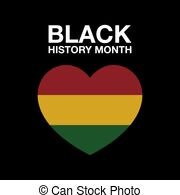 Black History Month, or African American History Month, celebrated each February, is a time to commemorate the achievements and cultural contributions of African Americans. It is also a time to recognize the health disparities among African Americans versus whites.
Black History Month, or African American History Month, celebrated each February, is a time to commemorate the achievements and cultural contributions of African Americans. It is also a time to recognize the health disparities among African Americans versus whites.
Health Disparities
Communities of color are more likely than white communities to suffer from socioeconomic inequities, including exclusion from health resources, educational opportunities, and social and economic resources. These exclusions can lead to poor physical health outcomes for black Americans.
The COVID-19 pandemic has further shined a light on the disparities among racial groups. For instance, according to the Centers for Disease Control and Prevention (CDC), African American and Hispanic or Latino people are 4.7 times more likely than non-Hispanic whites to be hospitalized for COVID-19.
COVID-19 may be a more serious problem for the African American population due to the following factors:
- Underlying health conditions
- Dense living conditions
- Employment in the service industry
- Employment as essential workers
- Limited access to health care
- Racism
Although the death rate for African Americans overall has declined by 25 percent since the early 2000s, the CDC reports that African Americans are still more likely to have a shorter lifespan than other races in the United States. In addition, diseases and conditions found in later life among whites tend to appear at younger ages in the African American population. Among those are: 
- hypertension
- diabetes
- stroke
The health problems affecting a greater percentage of black Americans than whites include:
- heart disease
- kidney disease
- cancer
Social Factors and Health
Social factors that have a negative effect on health also are more common among African Americans than whites, such as:
- Unemployment
- Poverty
- Not owning a home
- Smoking
- Inaccessibility to quality health care
- Lack of health-care coverage or experiencing gaps in coverage
- Inactive lifestyle
- Obesity
Health-Care Resources
Detailed information can be found on the following topics:
- Health Insurance: The Affordable Care Act (ACA), signed into law by President Barack Obama in 2010, has helped decrease the number of uninsured African Americans by 2.8 million people, but the high cost of coverage still has kept many people from becoming insured. For information on obtaining health insurance in California at reduced rates or for free, visit the Covered California website or call 866-761-4165. For those 65 and older, visit the Medicare website or call 800-MEDICARE (800-633-4227) to apply for coverage or to learn more about Medicare benefits and enrollment.

- Health Equity: For information on issues of health equity, visit the CDC website https://www.cdc.gov/healthequity/features/african-american-history/index.html , which contains a list of common health issues affecting African Americans and ways to live a healthier life. For an extensive list of resources by health topic, visit the Food and Drug Administration’s (FDA) Minority Health Resources website.
- Advocacy: The California Black Health Network (CBHN) is a black-led, statewide organization dedicated to advocating for health equity for black immigrants and African Americans. It offers health information, webinars, health insurance information, and legislation of interest to the black community. Visit the CBHN website to learn more.
Herrick Library Resources Honoring African Americans
The following books are in the Herrick Library collection and can be reserved and checked out via curbside pickup or through the OverDrive app, where indicated*:
- Believing in Magic: My Story of Love, Overcoming Adversity, and Keeping the Faith, by Cookie Johnson
- Black Man in a White Coat: A Doctor’s Reflections on Race and Medicine, by Damon Tweedy
- Cross-Cultural Medicine, edited by JudyAnn Bigby (medical DVD)
- Every Day I Fight, by Stuart Scott
- *Game Changer: John McLendon and the Secret Game, by John Coy
- I Beat the Odds: From Homelessness to the Blind Side and Beyond, by Michael Oher
- The Immortal Life of Henrietta Lacks, by Rebecca Skloot
- *Muhammad Ali: The Greatest, by Matt Doeden
- *My Family Celebrates Kwanzaa, by Lisa Bullard
- *The Unapologetic Guide to Black Mental Health: Navigate an Unequal System, Learn Tools for Emotional Wellness, and Get the Help You Deserve, by Rheeda Walker
For children:
- The Doctor with an Eye for Eyes: The Story of Dr. Patricia Bath, by Julia Finley Mosca (picture book)
- Hair Love: A Celebration of Daddies and Daughters Everywhere, by Matthew A Cherry (picture book)
- *The Vast Wonder of the World: Biologist Ernest Everett Just, by Melina Mangal (picture book)
- Skin Like Mine, by LaTashia Perry (picture book)
- Whoosh!: Lonnie Johnson’s Super-Soaking Stream of Inventions, by Chris Barton (picture book)
Sources: American Medical Association, 7 Ways to Improve Black Health—In Mind and Body, https://www.ama-assn.org/delivering-care/population-care/7-ways-improve-black-health-mind-and-body; CDC, Health Equity: Celebrate African American History Month!, https://www.cdc.gov/healthequity/features/african-american-history/index.html; CDC, Vital Signs: African American Health, https://www.cdc.gov/vitalsigns/aahealth/index.html; Mayo Clinic, Coronavirus Infection by Race: What’s Behind the Health Disparities?, https://www.mayoclinic.org/diseases-conditions/coronavirus/expert-answers/coronavirus-infection-by-race/faq-20488802; Pfizer, Health Disparities Among African Americans, https://www.pfizer.com/news/hot-topics/health_disparities_among_african_americans
Graphics: Can Stock Photo

